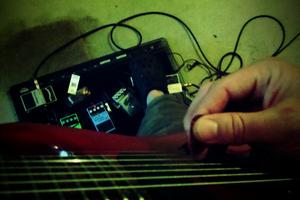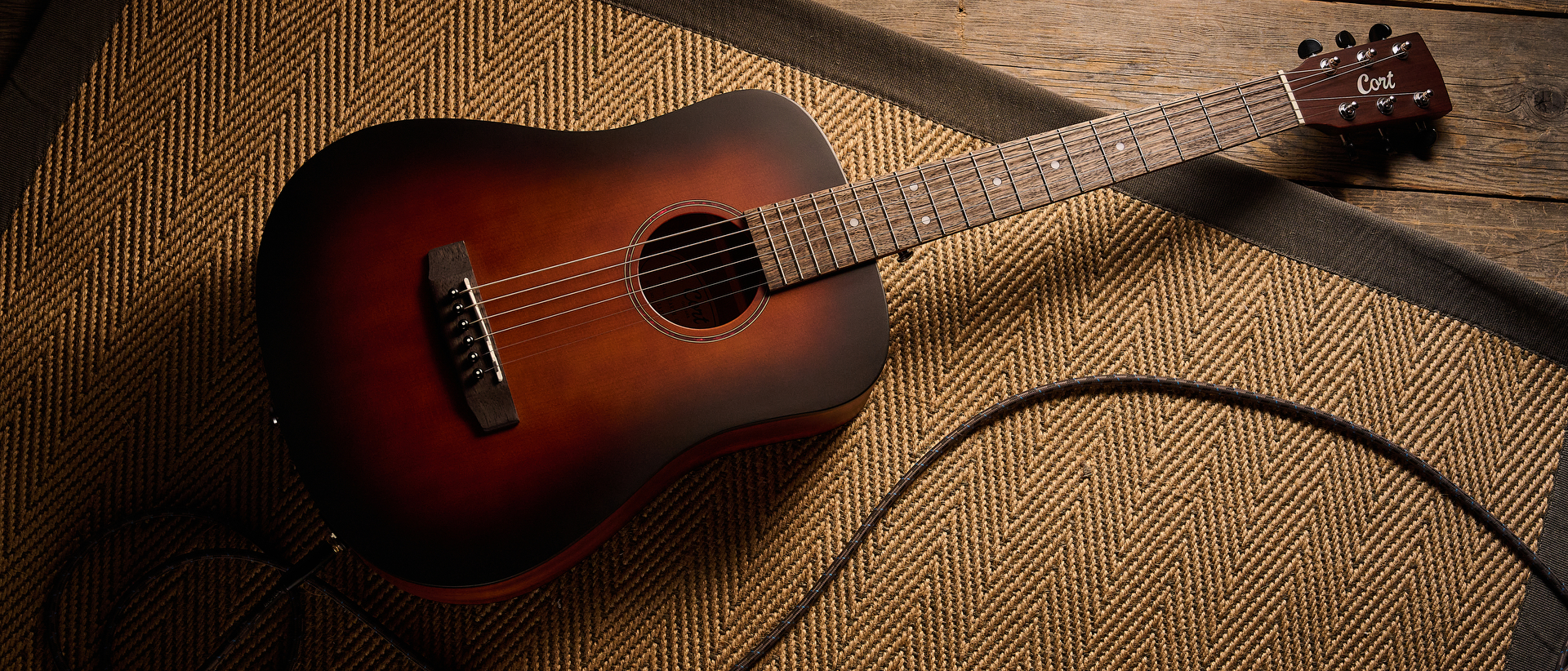Effective and Applicable: Benefits of Listening — and Not Listening — to Other Guitar Players
All the latest guitar news, interviews, lessons, reviews, deals and more, direct to your inbox!
You are now subscribed
Your newsletter sign-up was successful

I’m sick of practicing. I’m in a rut. Nothing I do is original. I’ve played this a million times already. I don’t seem to be getting better. Where do “THEY” get all those good ideas, anyway?
Welcome to part 2 in my “The Art of the Practice” series of articles. This is where we seek to interject your practice with some much needy variety, novelty and fun. Which is exactly the way it should be. In this post, I’m going to take a two-pronged tact. Here we go:
First: The Benefits of Listening to other Guitar Players
Naturally you already listen to other guitar players. That’s probably what caused you to pick up the instrument in the first place. You’re a guitar player, after all. Like all of us, you aspire to a level on par with your most rockin’ of influences, snake the occasional lick, and bash out your favorites in cover bands.
How about looking at it a different way, though? Have you ever considered focusing on what your go-to players aren’t doing? Seriously. It goes something like:
1. Does that guy ever play a solo where he doesn’t use the wah? I wonder what it would sound like with out that over-used effect?
2. This band plays everything at 100000 bpm. I wonder what some of their riffs would sound like slower, more plodding …
All the latest guitar news, interviews, lessons, reviews, deals and more, direct to your inbox!
3. On a similar note as No. 2: This guitar player plays like a math book -– what would some of his licks sound like slower, with more passion, more melody.
4. I hate that tone! What about …
5. What if I switched this song to another genre entirely? Think about how Johnny Cash covered Soundgarden, for example, or how Soundgarden covered the Doors ...
You get the idea. Seeing music through this prism may have occurred to you before, in passing. But it’s a whole other thing entirely when it’s top of mind as you listen. Keep your ears and your mind focused on what’s not happening and what blanks you can fill in and you’ll come up with some good stuff.
Second: The Benefits of Not Listening to other Guitar Players
From the most straight-up 12-bar blues guy to your most deadly shredder, players tend to forget what an unbelievable versatile instrument the guitar is. The ways in which one can manipulate the sound coming from the guitar are limited only by imagination. Its power makes the Green Lantern’s ring pale in comparison.
By absorbing non-guitar noise, you are going to be building a whole new repertoire of ideas to bring back to your instrument. It’s a fantastic exercise for building your chops and your technical vocabulary. It’s important to point out that this isn’t necessarily just about effects -– just think about the alternate sounds that could be produced on a naked guitar.
1. Vocal Music. Especially artists outside of your genre of choice. Ever try to mimic the vocal stylizations of Josh Groban or Katy Perry on your axe? Focus on the differences in tone, speech pattern, timbre, etc. Women’s voices are very different from that of men; how would you highlight those differences on your guitar? What about Frank Sinatra? Phil Anselmo? Hank Williams? Aretha Franklin? Chris Cornell? Chanting Monks? The list is massive.
2. World Music. Pick a country or continent that you don’t live in or on obviously. Personally, I’ve had a great time trying to figure out Eastern Indian music. Usually I have no idea what the heck is going on, but once in a great while I find a little lick or riff or an odd time and it kicks my ass. Tunes heavy on the drums and percussion can also lead to some cool stuff.
3. Nothing. That’s right. Don’t listen to anything. No sound, you sonic junkie. No radios, computer, TV, car. Listen only to the SOUND OF THE WORLD. This exercise is like a variation on the old “vow of silence” -– except it’s more about you not hearing outside sounds than not making them. This can be one of the more challenging ones because most of us are sound addicts to one degree or another, and we figure that the only treatment is noise-making.
4. This is an extension of No. 3, but it warrants its own space. We tend to be largely acclimated to the auditory world around us -- that everyday collage of sounds we bathe in daily. Natural rhythm and melody abound. Think consciously about: traffic, the weather, kids playing, birds, dogs. Consider also how sound changes during the course of a day and again into the night …
5. Put it down. Your instrument. Do it. Clear the chamber -– rest it in a safe and secure place. Back away slowly. It’s okay. No guilt, brothers and sisters. No judgment here. Absence makes the heart grow fonder, right? It also can make your riffs, overall playing and especially your enthusiasm do the same. Sit back, close your eyes, and listen to the radio play in your head!
Break the glass in an emergency and try ‘em out when necessary. Let me know how they work for you and what happened as a result of their use. Email me at bri@captaindecibel.com. Best! Keep rockin’!
Brian is the guitar player in the rock band Captain Decibel, whose second independent release, The Dream Logic, is coming very soon. Spending 20 years learning the guitar has resulted in more than just unique riffing. For more information, check him out at captaindecibel.com or email him at bri@captaindecibel.com.
